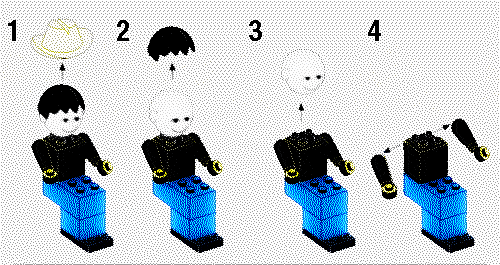One of my goals for this year is to learn spoken Mandarin Chinese. Given that I live and work in China it only makes sense that I learn the language which will ultimately help improve both hopefully. Also given that Mandarin is one of the harder languages to learn (hard as in virtually impossible if you want to read as well as speak it) I am not expecting an easy ride.
Last year I read an intriguing article by the author and self-proclaimed “life hacker” Tim Ferris titled “How to Learn (But Not Master) Any Language in 1 Hour”. He reasons that before you invest a lot of time in a language you should first deconstruct it into its core components by examining sentence structure through comparison with your native tongue. By doing this you should in theory be able to get a better grasp of the core components of the language in relation to your own and thus gain conversational fluency faster. That’s the theory anyway so I decided to take a shot a deconstructing Mandarin and share what I found out…
From this we can see how verbs remain independent of the speaker (both according to gender and number), placement of indirect objects (John), direct objects (the apple), and their respective pronouns (him, it). We can also see how to negate sentences and how tenses are expressed.
The good news is that Mandarin uses the same Subject-Verb-Object sentence order as English does and uses auxiliary verbs. The bad news is that pronunciation is notoriously difficult for English speakers since each syllable/word is made up of a combination of “initials” and “finals” plus a tone added. Added to this there are a ton of homonyms to deal with (two or more words with the same sound/spelling but different meaning), so many in fact that even native speakers have trouble with it!
As a start to learning a language, I think it’s a useful exercise but ultimately a lot of effort is going to be needed to build up enough vocabulary to get by. As I did with Korean I’ll be posting up any material which others might find helpful.
Some useful resources:
- Language Learning Library – good place to start with basic info
- ChinesePod – excellent podcasts with new lessons added frequently
- Chinese-forums.com – useful forums on Chinese language an culture
- Times Online – good introductory learning Chinese course
- Chinese-Tools.com – more free lessons, dictionary and other tools
Update (07/01): Updated document to include Pinyin tones


Reply